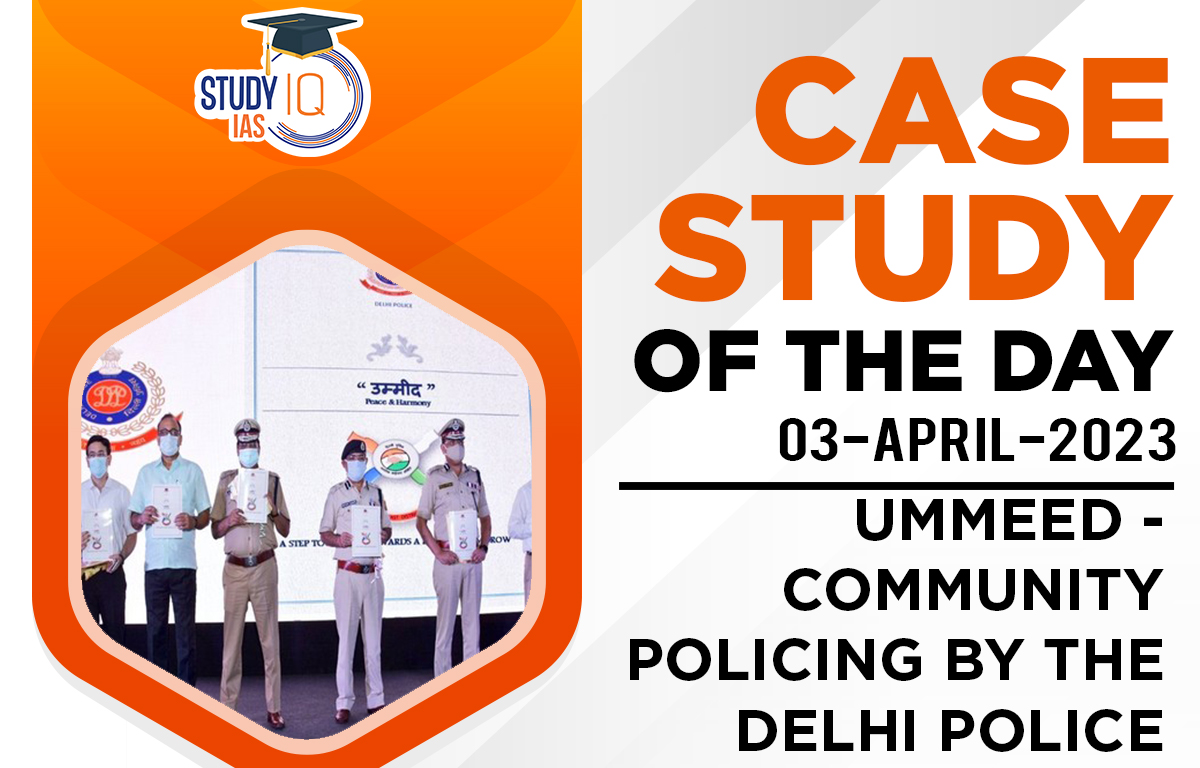Context: The Delhi Police Commissioner has recently inaugurated a community policing programme named “Ummeed” in the north-east district of the national capital.
About Ummeed Programme
- Ummeed has been launched as a community policing programme, in a bid to ensure social harmony and peace between communities.
- Reasons for launching Ummeed
- Since it is not feasible to deploy policemen in every nook and corner, a self-disciplined and service-oriented society is required to assist the police to establish peace and harmony.
- To deal with few anti-social elements, which need to be identified and dealt with as per law.
- To strengthen the common chord of togetherness and mutual trust between communities in order to live peacefully in the spirit of coexistence.
- About Community Policing
- Community policing is a philosophy that promotes organizational strategies to support the systematic use of partnerships and problem-solving techniques, to proactively address the immediate conditions that give rise to public safety issues such as crime, social disorder, and fear of crime.
- Components
- Community Partnerships between the law enforcement agency and the individuals and organizations they serve to develop solutions to problems and increase trust in police.
- Organizational Transformation, which involves alignment of organizational management, structure, personnel, and information systems to support community partnerships and proactive problem solving.
- Problem Solving, which is the process of engaging in the proactive and systematic examination of identified problems to develop and evaluate effective responses.
- Current issues with traditional policing:
- Centralization has dampened effectiveness of initiatives
- Experts make blanket policies
- Efficiency measured by statistics
- The warrior image
- Customs and values disconnect
- Creates a ‘force’ and not a ‘service’
- The US and THEM environment
- Benefits of Community Policing include:
- No government funds are required
- Enhances immunity against crime and disorder
- Assists traditional policing
- Bridges the gap of trust
- Encourages social interactions
- Police and public share credit and discredit
- Police officer feels safe in his area of responsibility
- Reliable and workable information is available
- Inculcates sense of responsibility in the public
- Police and the public are accountable to each other
- Promotes democratic values in the society



 Serious Fraud Investigation Office (SFIO...
Serious Fraud Investigation Office (SFIO...
 Article 142 of Indian Constitution, Sign...
Article 142 of Indian Constitution, Sign...
 Pakistan-Occupied Kashmir (PoK): History...
Pakistan-Occupied Kashmir (PoK): History...





















